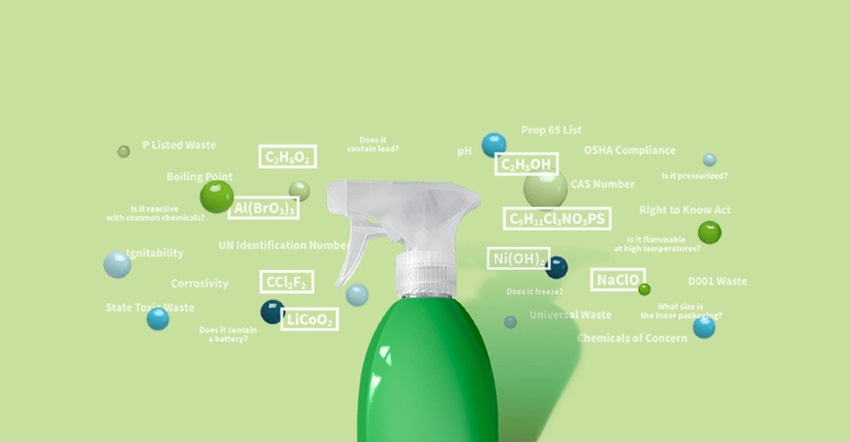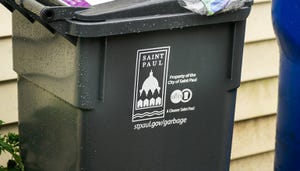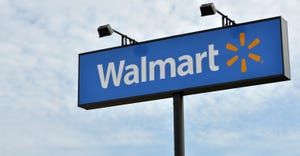Smarter Sorting Aims to Help Retailers and Brands Reduce Liability
Managing consumer products sustainably, compliantly, and economically along the supply chain can be a huge undertaking for brands and retailers. The job gets especially complicated with regulated consumer products. There are millions of potentially hazardous goods, from household cleaners to butane lighters, and over 7,000 federal, state, and local regulations that could apply to them.

Managing consumer products sustainably, compliantly, and economically along the supply chain can be a huge undertaking for brands and retailers. The job gets especially complicated with regulated consumer products. There are millions of potentially hazardous goods, from household cleaners to butane lighters, and over 7,000 federal, state, and local regulations that could apply to them.
That number grows quickly as the regulatory landscape becomes more complex and as rules change. Retailers need to stay on top of ingredients, formulas and know how they can store, move, and otherwise manage them, which calls for a systematic approach to quickly and accurately evaluate products, says Jacqueline Claudia, CEO Smarter Sorting.
The tech company created an intelligence platform to help. Smarter Sorting supports retailers and brands in reducing their liability and making sound, economical business decisions around managing the tremendous volume and mix of products they sell through their lifecycle.
A large focus is on helping them reduce waste and improve environmental outcomes, for instance determining the best disposal path or if an item is recyclable or donatable according to regulations.
The technology works by gathering attributes, connecting them to other data sets, then doing calculations and running algorithms to deliver a myriad of information.
“We have a data set of millions of products and their physical and chemical attributes (composition, size, etc). A computation layer considers regulatory or business decision needs to be made about a product with regard to those attributes. And mathematical equations are developed using datapoints from that data set to inform those decisions,” Claudia, says.
The platform helps businesses understand how regulations and multiple retailers' business rules apply to ingredients in their products. Informs them of regulatory implications of small changes in the underlying chemistry or concentration levels of the ingredients. And helps keep them current when the regulations themselves change, explains Claudia.
Product information is entered into a database from a dashboard where it can be viewed and or shared. Brands register and update their products from this central location. They can access waste codes, transportation regulations, and disposal classifications. They can tap into the platform for such specific information as where and how to store a potentially flammable material or to determine if there are special handling rules.
A back-of-store solution (BOSS) identifies the most suitable end-of-life pathway. Data can be shared through an application protocol interface (API), which allows retailers to integrate their back-of-store tools with Smarter Sorting’s computational product intelligence. They scan product UPC codes to determine the appropriate disposal bucket and can look in real time to confirm how much of what product is in each bucket. This tool is particularly useful not only in tracking accumulation status but in spotting product problems early, Claudia says.
“For example, if a lot of detergent ends up in a bucket because the containers all have cracked caps, that might be a signal that the retailer needs to call the manufacturer to alert of a packaging defect,” she says.
The BOSS feature also identifies donatable products. Retailers provide business rules, which are converted to algorithms. When associates scan a barcode, they learn if it’s donatable and can put it in the donation bin if it is.
End users can access information in different ways: they can use the Smarter Sorting web viewer. Or if they have sophisticated IT systems and data analytics capabilities, they can use data points provided to them to power their existing systems.
Equipped with this data, they can potentially avoid hundreds of millions of dollars in fines and damaging headlines. At the same time, they can reduce their waste management bill, according to Claudia. She explains:
“If businesses are not sure if a product can be recycled, they tend to be conservative to avoid a fine [often opting to mass burn]. But sometimes there are alternatives with lesser environmental impact that are more economical and that may allow reuse.”
She exemplifies with bleach. Sending a $.99 gallon of bleach to a mass burn facility costs about $10.
“But you can donate it to a food bank. They need to clean surfaces. You do not pay to dispose of it; you get a tax credit; and the product was used rather than wasted. That’s a lot of good. Our system helps retailers make decisions like that every day,” she says.
The platform has helped to make informed management decisions around perfectly good food. Feeding America, a nationwide network of more than 200 food banks, is among Smarting Sorting’s larger customers, tapping into the platform to connect to retailers with donatable edibles.
Smarter Sorting lists the available food or other products, quantities, and locations. When a retailer scans a donatable item, the system enters its availability in real time, so that information is immediately accessible in the charity organization’s Meal Connect system.
The integration means local food banks can learn if a nearby store has donations to pick up that day, types of products, and weight, among information.
Venture capital fund Regeneration.VC invested about $7M in Smarter Sorting. Michael Smith, general partner at Regeneration.VC, says the platform performs tasks for clients that it’s not practical for them to take on themselves, while providing them important protections.
“Retailers shouldn’t classify products in-house. They don’t have the computational scientists, data engineers, and software experts to build a platform and manage the complexity.
But brands don’t want to share their full formulation and give away their IP - literally their secret sauce - to a retailer or a third party. Smarter Sorting has figured out how to collect critical information to measure a product’s environmental impact without storing their core IP on an external database,” Smith says.
Smarter Sorting customers are big box retailers, warehouse clubs, national grocery chains, and suppliers. The company is starting to target third-party logistics operations, storage businesses, shippers, and formulators, Claudia says.
So far, the tech company that launched in 2015 has signed on more than 1,700 brands and 24 major retailers, such as Costco and Albertsons. Several more will launch by the end of 2022, Claudia says.
About the Author(s)
You May Also Like




